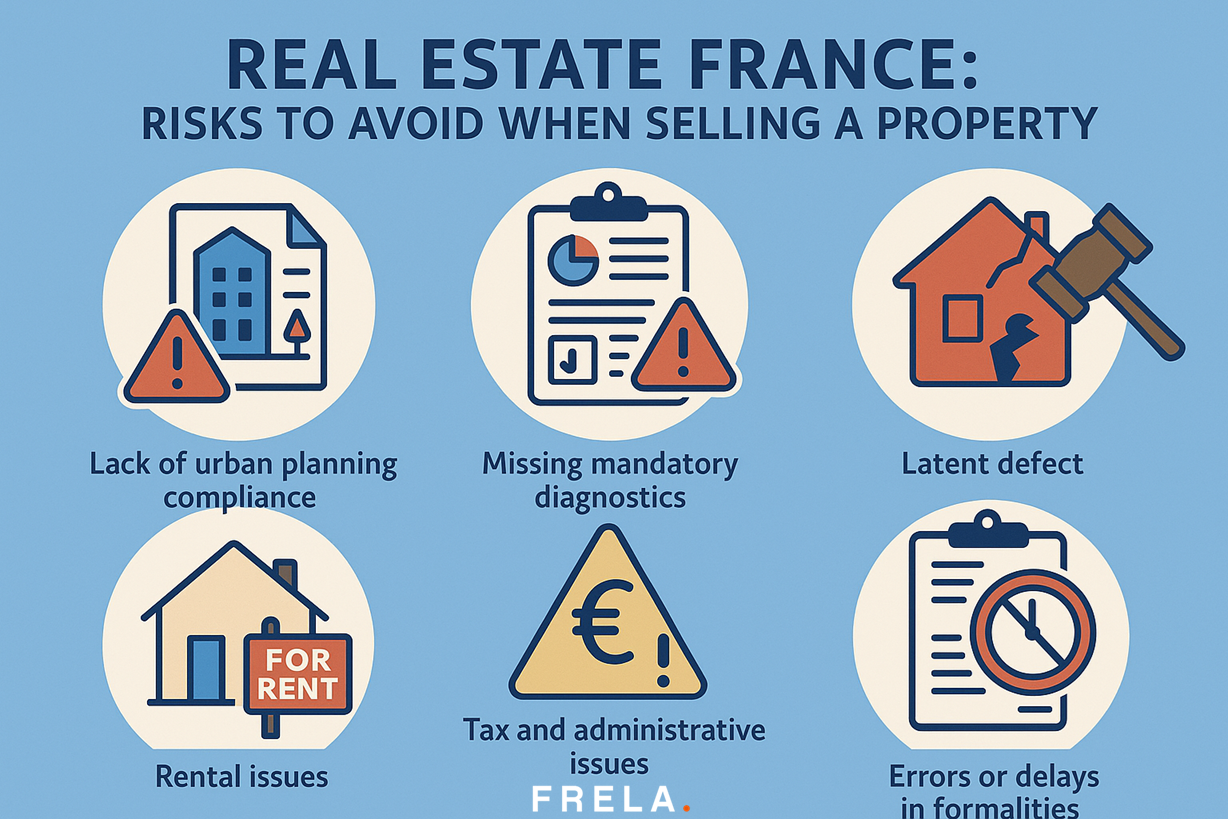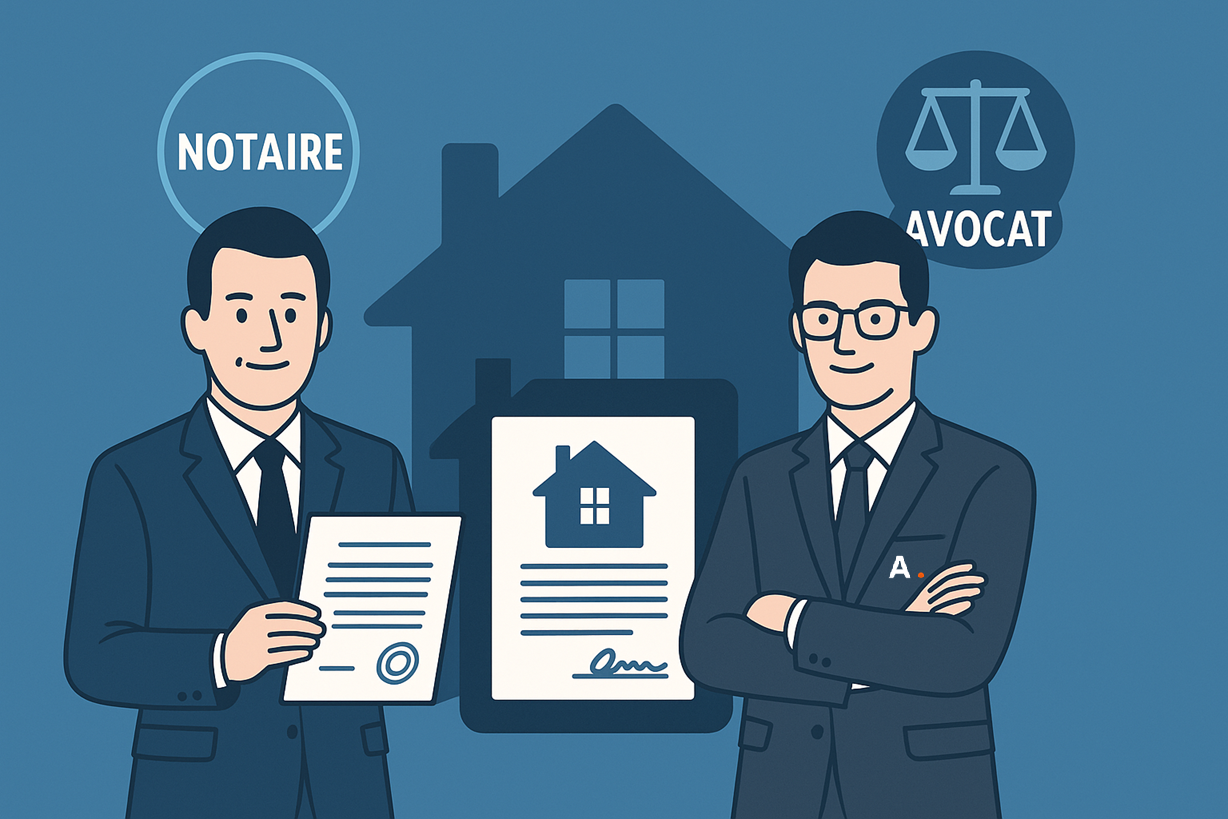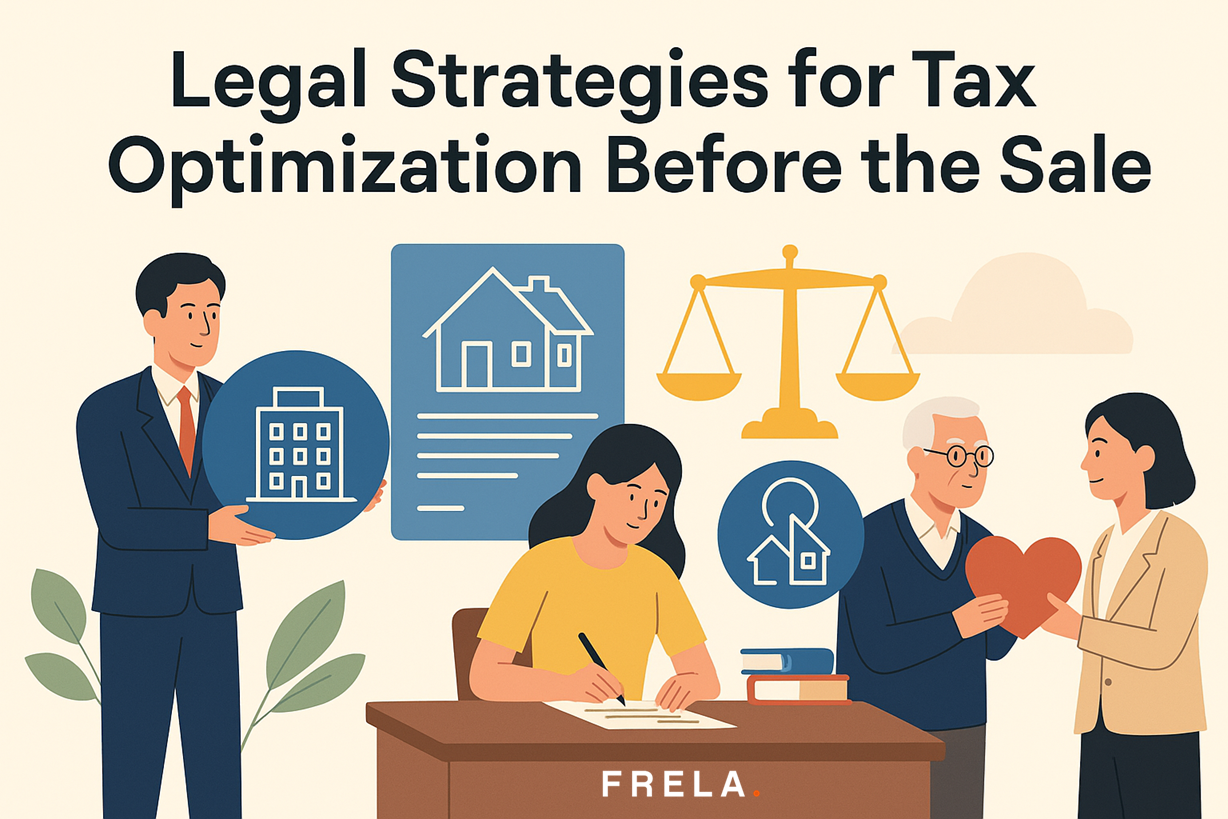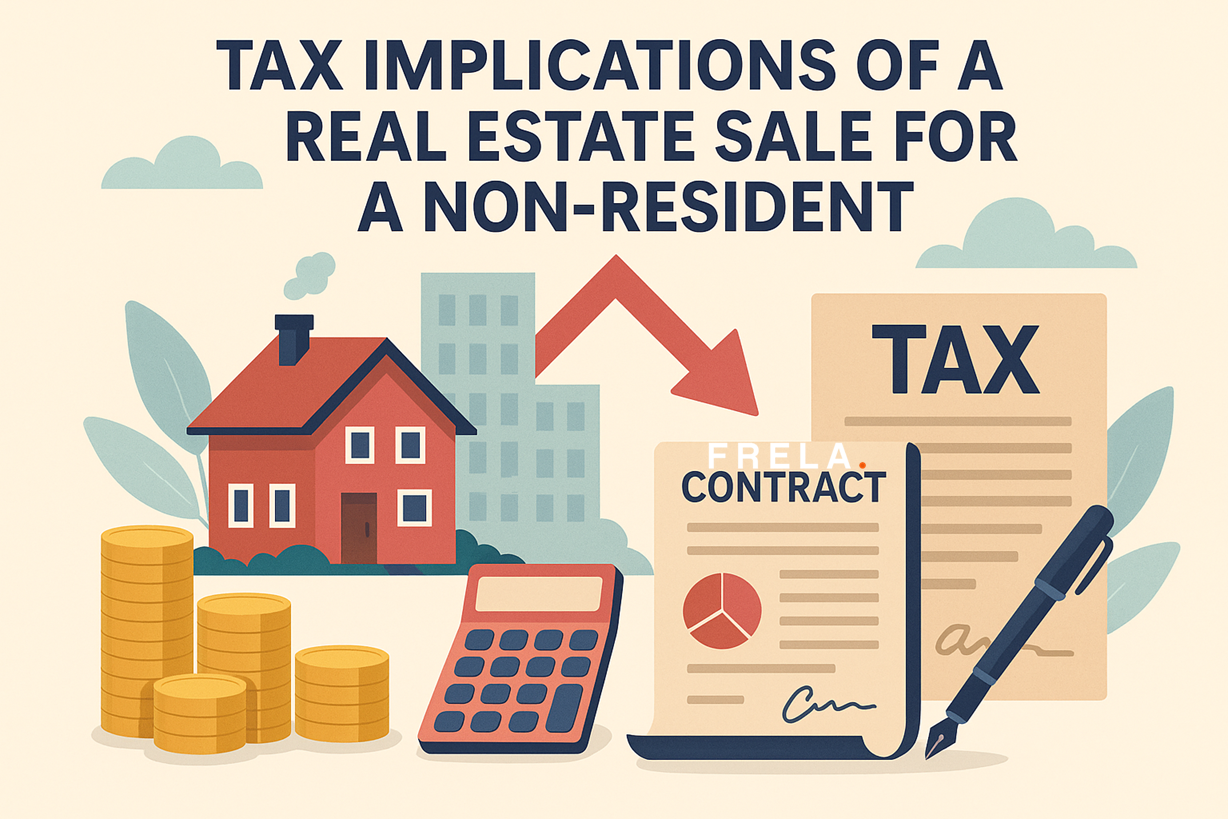Everything You Need To Know About The Sale Of Real Estate In France
The sale of real estate in France is governed by French law and is therefore subject to the same rules and regulations as any other sale of property in France. However, there are a few important things to keep in mind if you are thinking of buying or selling property in France. For instance, if you are not a French citizen, you will need to obtain a residence permit before you can purchase property in France. You will also be required to pay a number of taxes, including a transfer tax, stamp duty, and registration fees. It is therefore important to seek legal advice from a French lawyer before proceeding with any sale of real estate in France.
This article provides an overview of the main things to keep in mind when buying or selling property in France.


What are the procedures for selling property in France?
When selling a property in France, there are a number of procedures that must be followed.
Firstly, it is important to advertise the property effectively and obtain a sales agreement from the buyer. This sales agreement must state the rights and obligations of both seller and buyer, as well as outline how the payment of the price shall be made.The buyer is also required to make the full payment in one sum, either in French currency or in foreign currency from an authorised foreign exchange institution.
Once the sales agreement has been signed and the full payment has been made, the parties must register the deed of sale at the local notary. This deed of sale will transfer the ownership of the property to the buyer and will also include information about any financial liabilities affected by the sale such as outstanding mortgages.
Finally, when the deed of sale has been registered, the buyer must obtain a certificate from the Land Registry proving that they are the owner of the property. Once this certificate has been issued, the sale is legally completed.
What are the taxes involved in selling property in France?
The sale of property in France is subject to a number of taxes, including the transfer tax, stamp duty, and registration fees. The transfer tax (or stamp duty) is a tax paid by the buyer to the French government and is based on the value of the property.
This tax rate is currently 3.8% and applies to all transactions concerning the sale of residential property in France.
In addition, the buyer must also pay registration fees which are typically around 2% of the property’s value. These are charged by the local registrar and are used to register the deed of sale with the Land Registry Office.
Finally, sellers must also pay capital gains tax when selling a property in France. This tax is calculated based on the difference between the amount from which the buyer purchased the property and the amount for which the seller sold it. For example, if the buyer bought the property for €120,000 and the seller sold it for €150,000, then the seller will be liable for a capital gains tax on the €30,000 difference.
What are the responsibilities of the seller and the buyer?
When selling a property in France, the seller must ensure that all the paperwork is in order and that the deed of sale is properly registered with the Land Registry Office.
The seller must also provide a copy of the deed to the buyer and must ensure that all the taxes associated with the sale have been paid.
On the other hand, the buyer must ensure that they have obtained the correct permits to purchase the property and that they have the funds available to pay for the property.
The buyer must also ensure that all the necessary registration fees have been paid to the local registrar.
What are the different types of ownership in France?
In France, there are two different types of ownership when it comes to real estate – full ownership or joint ownership.
Full ownership refers to a situation in which one individual owns all the rights of a property, while joint ownership is a situation in which two or more individuals have shared rights over the property.
Joint ownership is particularly common in France, as it makes it easier for couples or family members to own a property together.
In joint ownership, the rights and obligations of ownership are shared between the joint owners, but the property may only be sold with the consent of all joint owners. This type of ownership can be beneficial for those who want to pool their resources in order to purchase a property.
What are the restrictions on foreigners buying property in France?
Foreigners who wish to purchase property in France must obtain a residence permit (laissez-passer) from the French authorities.
This document allows the citizen to legally reside in France and to purchase properties there.
In addition, foreigners must also register with the local tax office in order to pay the necessary taxes associated with their stay in France.
Finally, foreigners may also be subject to certain restrictions on the types of property they can buy and may only be able to purchase certain types of real estate such as flats or houses.
How is the French real estate market performing?
The French real estate market has experienced strong growth over the last few years and is expected to continue to grow in the coming years. In particular, there has been an increase in the number of luxury properties in the South of France and in the major cities, due to increased demand from foreign buyers.
Despite the strong demand for property, the prices of real estate in France are still relatively affordable. For instance, the average price of an apartment in Paris is around €8500 per sqm, while prices in the French Riviera range from €5000 to €7000 per sqm.
What trends are emerging in the French real estate market?
One of the main trends in the French real estate market is the increasing popularity of rental properties.
Due to the increase in demand for rental properties, many investors are now buying properties specifically for the purpose of renting out. In addition, more and more buyers are now taking advantage of new technologies, such as virtual viewing technologies, to view and make offers on properties without the need to physically view them in person.
This is making it easier and more convenient for buyers to view properties and to make offers.
What are the challenges of selling property in France?
One of the main challenges of selling property in France is navigating the different procedures and regulations involved. In France, a notary is required to legally transfer the ownership of a property and there are a number of taxes and registration fees associated with the sale which must be taken into consideration.
In addition, foreign buyers must also obtain a residence permit before they can purchase property in France and they may be subject to certain restrictions on the types of property they can buy. These restrictions can be related to the size or location of the property, for example.
As such, it is important to seek professional advice and guidance when selling property in France, in order to ensure that the process goes as smoothly as possible.
FRELA real estate lawyers are specialized in assisting foreign investors in observing and optimizing legal and fiscal requirements while selling real astate in France.
Our experienced team will work closely with you to ensure your transaction is completed with complete accuracy and compliance to the laws of France. Let us guide you through the process and help make your dreams of owning a home abroad a reality!
About the Author :
Business lawyers, bilingual, specialized in acquisition law; Benoit Lafourcade is co-founder of Delcade lawyers & solicitors and founder of FRELA; registered as agents in personal and professional real estate transactions. Member of AAMTI (main association of French lawyers and agents).
FRELA : French Real Estate Lawyer Agency, specializing in acquisition law to secure real estate and business transactions in France.
Paris, 19 Rue du Colisee, 75008 Paris
Bordeaux, 78 Cours de Verdun, 33000 Bordeaux
Lille, 40 Theater Square, 59800 Lille

This article is provided for general information only and may not reflect the most recent legal or tax developments. It does not constitute legal advice. Please contact us for personalised guidance before making any decision.




